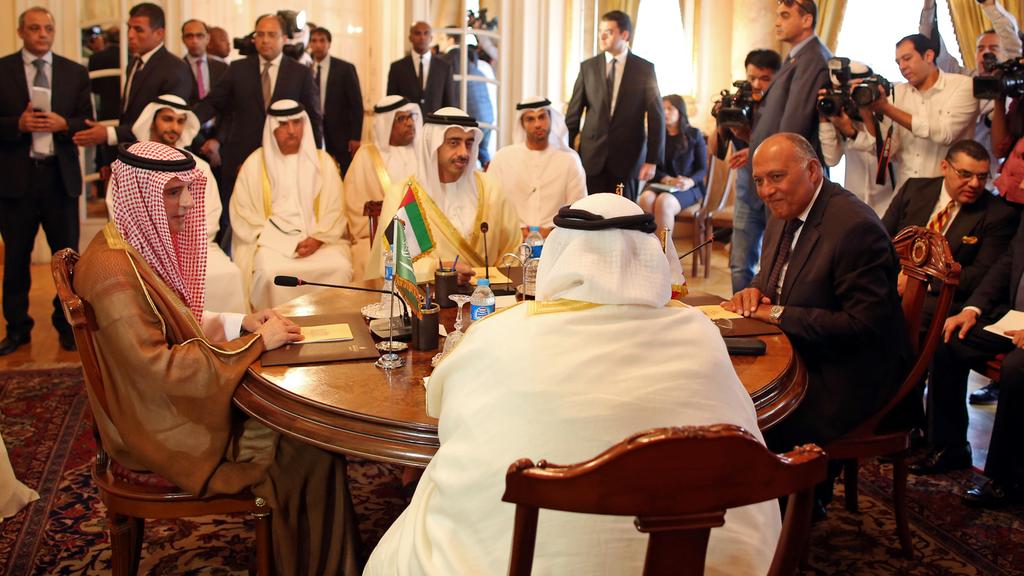Riyadh – The anti-terrorism quartet boycotting Qatar added nine entities and nine individuals backed by Doha to the list of terrorist groups, within steady efforts to combat terrorism and counter its financing.
The nine entities include, according to a statement released on Monday, Yemen’s Al-Balagh Charitable Foundation, Al-Ihsan Charitable Society and Rahma Charitable Organization, and in Libya, the Benghazi Revolutionaries Shura Council, Al-Saraya Media Center, Boshra News Agency, Rafallah Sahati Brigade, Nabaa TV and Tanasuh Foundation for Dawa, Culture and Media.
As for individuals, those include Khalid Saeed al-Bounein, Shaqer Jummah al-Shahwani and Saleh bin Ahmed al-Ghanim, all of the Qatari nationality; Hamid Hamad Hamid al-Ali from Kuwait, Abdullah Mohammed al-Yazidi, Ahmed Ali Ahmed Baraoud and Mohammed Bakr al-Dabaa from Yemen; and Al-Saadi Abdullah Ibrahim Bukhazem and Ahmed Abd al-Jaleel al-Hasnawi from Libya.
The joint statement issued by Saudi Arabia, the UAE, Bahrain, and Egypt said that the terrorist activities of the above-mentioned entities and individuals had direct and indirect ties with Qatar.
“The three Qatari individuals on the list, along with a Kuwaiti individual, have engaged in fund-raising campaigns to support Al-Nusra Front and other terrorist militias in Syria,” the statement noted.
As for Yemeni individuals and entities added to the terror list, the statement said they have all provided support to Al-Qaeda and have conducted actions on its behalf, “mainly by using significant funding from Qatari charities, which are designated by the four states as terrorist entities”.
Underlining Doha’s engagement in the Libyan crisis, the anti-terrorism quartet said that the two Libyan individuals and the six terrorist entities affiliated with terrorist groups in Libya “have received substantial financial support from the Qatari authorities and played an active role in spreading chaos and devastation in Libya, despite serious international concern over the destructive impact of such practices”.
The joint statement strongly criticized Qatar’s anti-terrorism laws, noting that recent measures adopted by Doha in this regard – including a joint memorandum of accord with the US – were not enough.
“Qatar’s 2004 law neither led to combatting extremism, terrorism, hate speech, nor did it end its financing and harboring of extremist individuals and groups,” the statement said.
“To the contrary, these individuals and groups have expanded their presence and activity in and through Doha,” it added, stressing that the Qatari authorities had a “long history of breaking all signed and binding agreements and legal obligations, the latest of which was the 2013 Riyadh Agreement and the 2014 Supplemental Agreement.”
The four Arab countries called on Doha to take urgent measures to prosecute terrorist and extremist individuals and entities and to prove its seriousness in rejecting terrorism and extremism by contributing to the international community’s efforts to fight terrorism.
“The four countries also affirm the continuation of their current measures, and possible future measures that might be taken, until the Qatari authorities are committed to fulfilling all the just demands, which ensure countering terrorism and maintaining security and stability in the region,” the statement said.
